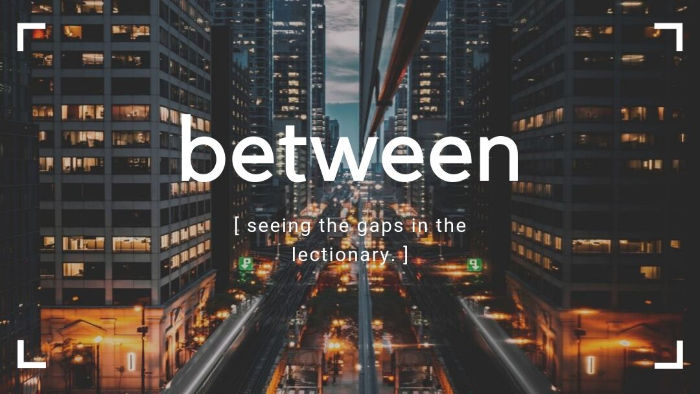A look at the gaps in the lectionary.
This week: the gap between Proper 9B + 10B
The text: none
We left last week’s visit to Jesus’s hometown and all of its fireworks to see Jesus send his disciples out in pairs, to do the work of Jesus in the world. The disciples became apostles. Today we call that “active learning” and it is at the heart of apprenticeship and discipleship. Learn and do, both—they reinforce each other.
It brings to mind the one thing that stuck from my intro to Psychology class. An old study with monkeys. And the point was to observe learning. It’s a famous study—you may have read about it.
One monkey receives shocks in their cage. They seem random. They don’t know where they come from.
Another monkey discovers he has a button in his cage. And he learns that when he pushes the button, the other monkey doesn’t get shocked. He learns that he can prevent the pain of the other by pushing the button.
There is a third monkey in his own cage, observing.
This is the first half of the study and not its point, however. They want to see how the three monkeys learn from this.
The first monkey learned nothing. Zilch. They make zero connection between the button and the shocks. The random, capriciousness of the shocks leads to a kind of helpless nihilism in them.
The second monkey learned it completely. The button stops the shock. They know it and have it down, seemingly forever.
But just as interesting, however, is the experience of the third monkey. He learned something, just not everything. And not very well.
Doing vs. Observing
There’s an interesting glass half empty/full deal with the third monkey. And one that we ought to reckon with.
The active learning model is so well-known and believed in that people quickly take the concept at face value. It is better to do than to hear about or watch. In chemistry, you need to pour the liquids into the beakers, kids have to play in the mud and get dirty. It all is part of the learning process.
We get this intellectually. And then…we send our kids into lecture halls to listen. From this perspective, we are breeding inefficiency. Our kids only learn half as much this way.
Of course, there is another side—learning can happen without experience. Reading a book is not as effective as doing the thing. But it, at least, is something.
There is a common experience for many who take foreign languages to see a classmate go abroad for a year. The full-immersion experience does wonders for their language skills and they come back fluent—even when they were a terrible student in class.
But just because the exchange student immersion experience is so powerful, that doesn’t mean those who stay behind learn nothing. We shouldn’t see this through an all or nothing lens.
Especially when some, who are the victims of abuse, poverty, or indifference, learn to shut down instead. There are many for whom the experience itself can offer them nothing redeeming at all.
Growing notoriety
Our reading over the last few weeks should be taken as a base for what is coming next. Particularly the increasing notice of Jesus, his disciples, and the ministry he inherited. Remember, he has taken up John the Baptizer’s mantle after his arrest, so his message of repentance is in John’s line.
Jesus is becoming famous. Crowds are following him. And he is trying to not be noticed.
And yet, he wants to be effective. His work is in the world. And it is to raise up these people, the disciples, who will learn the work by doing the work, so that they can do the work without him. And eventually, they too will teach the work to others by their doing the work.
All of this is going to be noticed. It is bound to.
